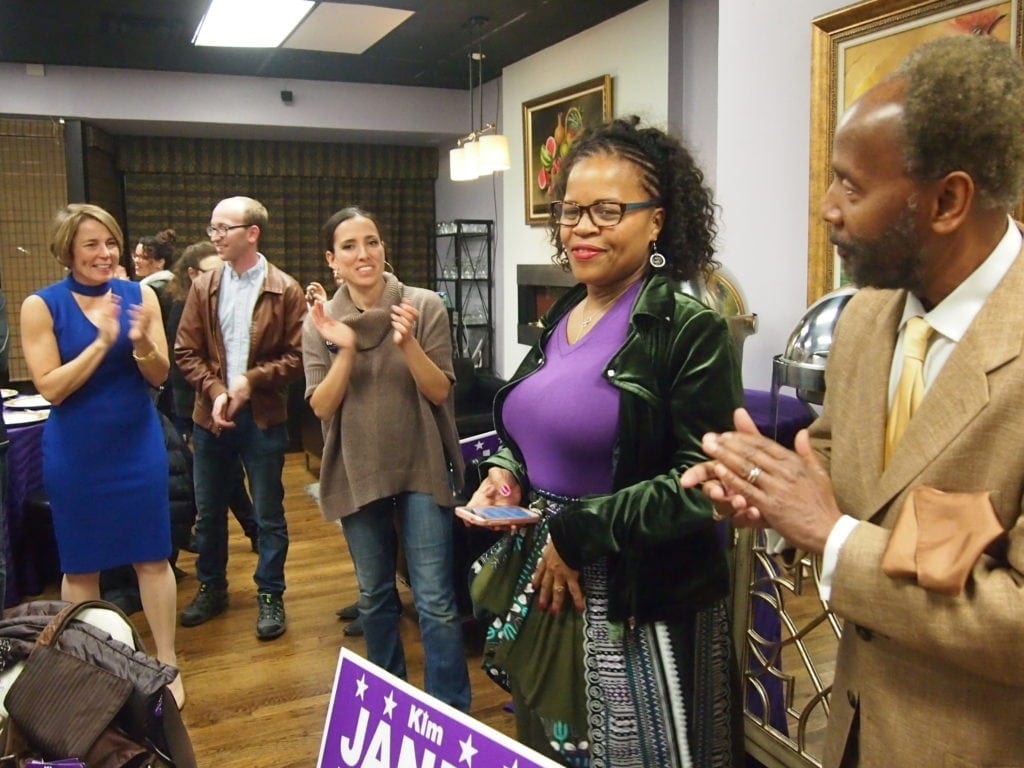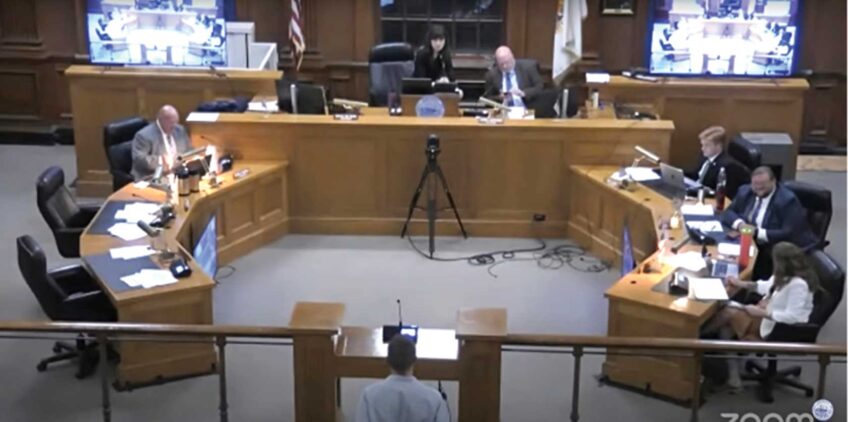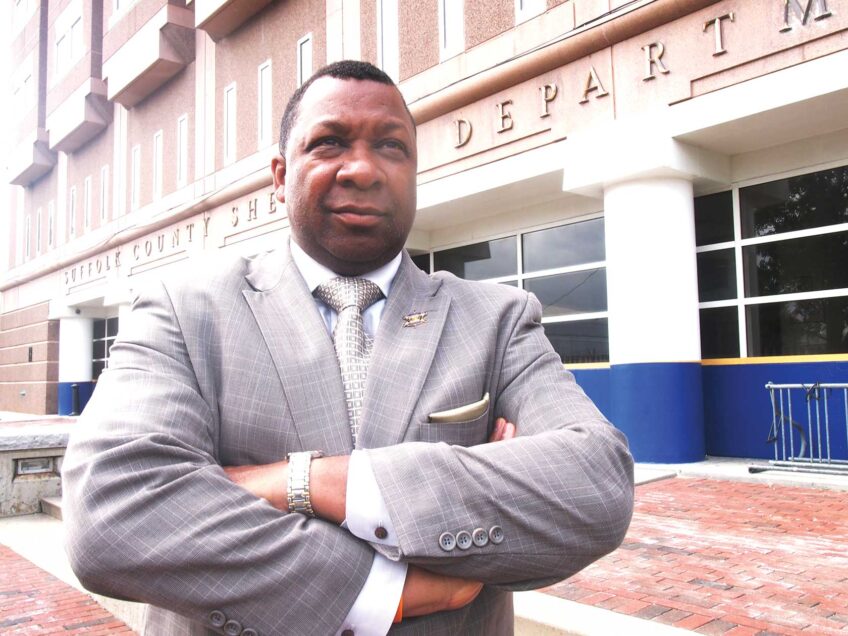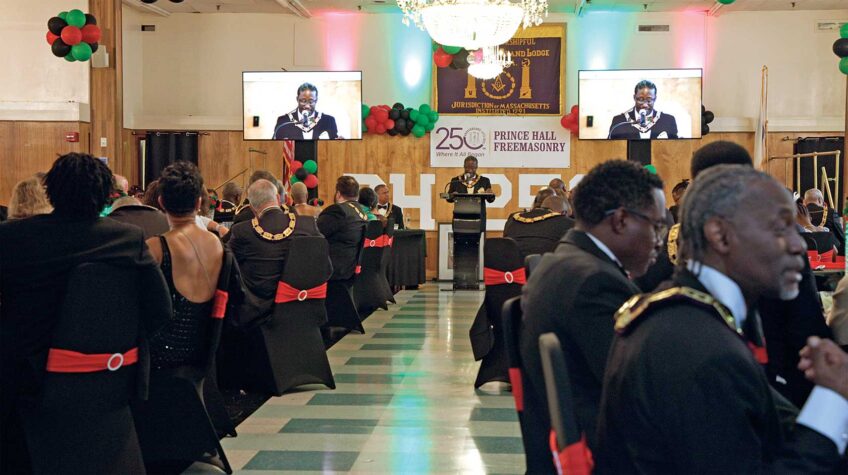
A long and at times contentious race to replace Tito Jackson as the District 7 city councilor ended last night with Kim Janey the victor, having garnered 55.5 percent of the 8,901 votes cast.
Janey, the first woman to represent the Roxbury-based district in the City Council, beat Rufus Faulk after the pair bested a field of 13 candidates in the Sept. 26 preliminary. She attributed her victory to hard work on and off the campaign trail.
“This has been about getting the work done, not just on the campaign trail, but the work we do as a community,” she said, addressing supporters during her victory party at Merengue Restaurant on Blue Hill Avenue.
Janey, who is a senior project director for Massachusetts Advocates for Children, has been active in education policy, in the Ward 12 Democratic Committee and in local civic groups.
She said housing issues, education and issues around income inequality figured prominently among the concerns she heard from constituents while knocking doors and participating in candidate forums.
On the campaign trail, she often spoke of District 7 and the city being at a crossroads with rising housing costs and inequality threatening the quality of life in Boston.
“To me, it’s all about issues of equity, making sure we all get to share in what the city of Boston has to offer,” she said. “Right now, too many of us are being left out. We’re seeing disparities in terms of access to opportunity. It’s incumbent on all of us to come together to address the demand for opportunities.”
Janey raised more than $80,000 during 2017. She said she personally knocked on 9,000 doors. Along with volunteer canvassers, her campaign knocked on 25,000 doors and made nearly 10,000 doors, according to campaign manager Noah Cooldidge.
Field manager Deborah Shah said the door-to-door campaigning is ultimately what wins in local elections.
“It’s really just about keeping on the doors and talking to the voters,” she said. “You’re not only able to win their support, you’re also going to gain insight from those conversations that enable you to be a better public servant.”
The race was not always civil. An anonymous letter accused Janey of being beholden to wealthy developers. Janey accepted campaign contributions from several individuals working in real estate and construction, including a $1,000 from her cousin Greg Janey. She said her contributions from people in real estate development-related fields accounted for less than 5 percent of her campaign funds.
Yet after several weeks of torn-down campaign signs, erroneously-implied endorsements and questionable campaign contributions, Janey said she would continue to stay out of the fray.
“I just tried to stay focused, stayed the course and knocked on doors,” she said. “If you keep doing the work, it will pay off.”
In her remarks to supporters, Janey thanked the other 12 candidates in the race, and said she would work with Faulk, who works as an anti-violence advocate for the Ten Point Coalition.
“I share his passion,” Janey said. “I look forward to working with him.”
With Janey and newly elected District 1 Councilor Lydia Edwards, the council will now have six women of color out of 13 members, the largest number of women on the council ever. The 2017 election also marks the first time since 1982 a black man has not served on the council.







